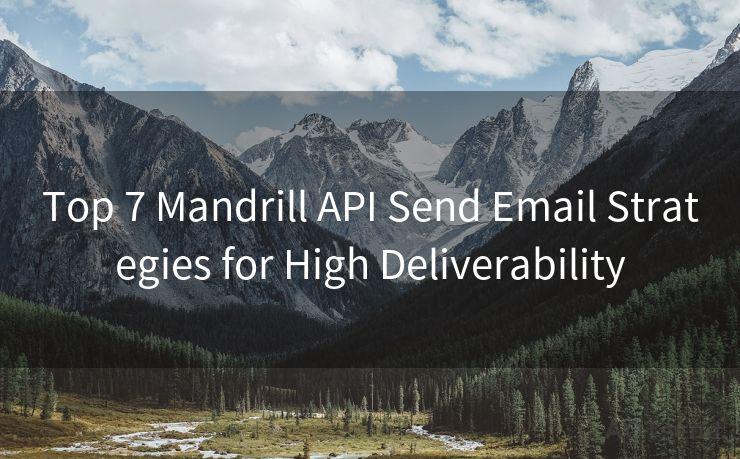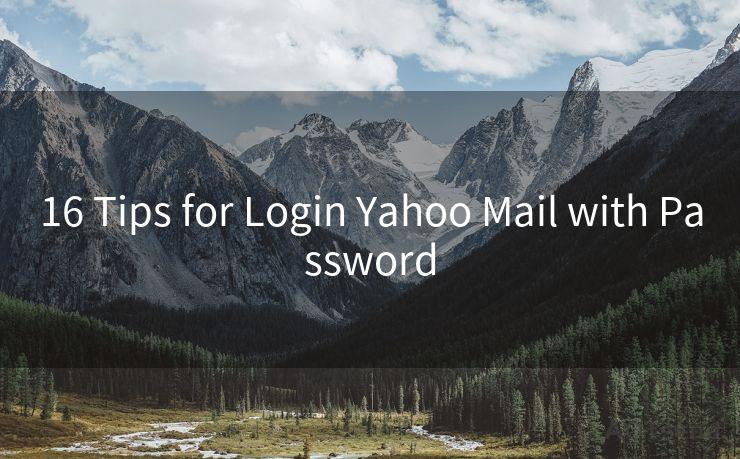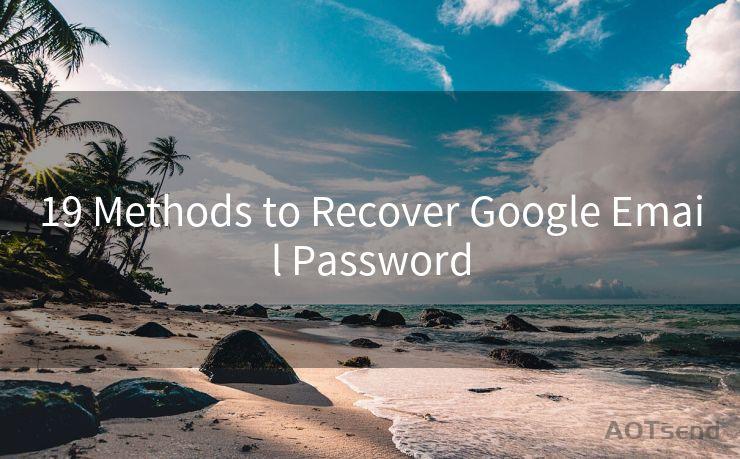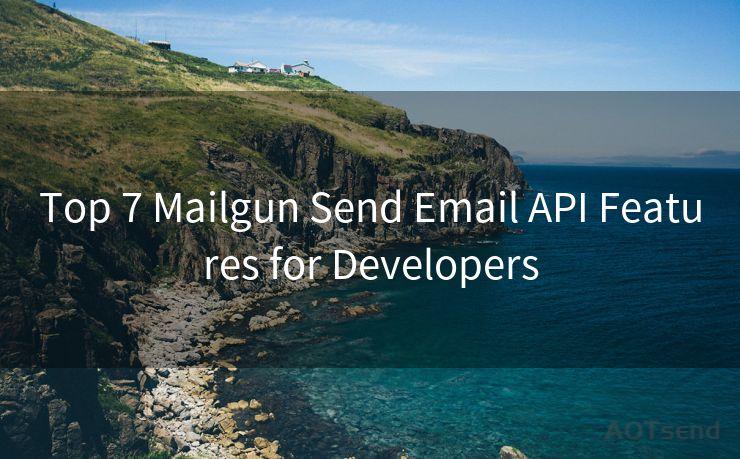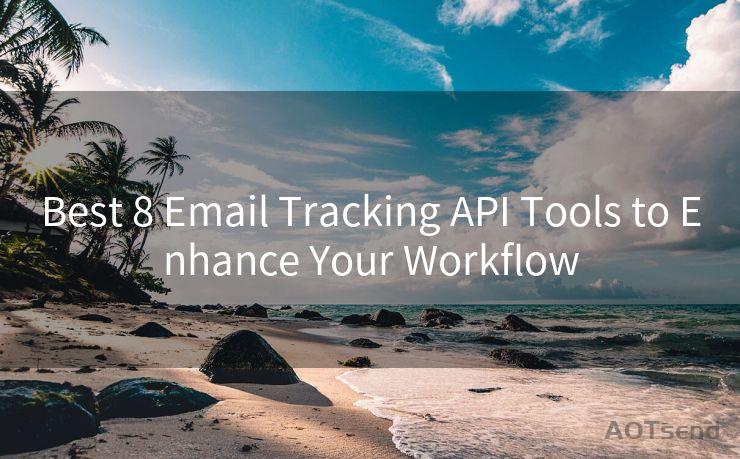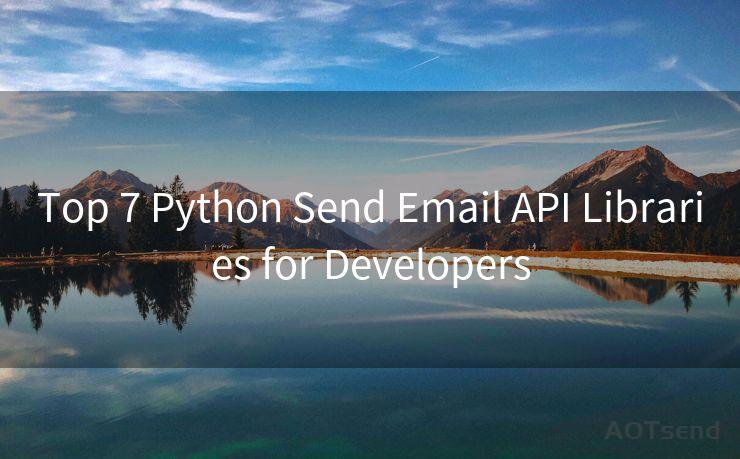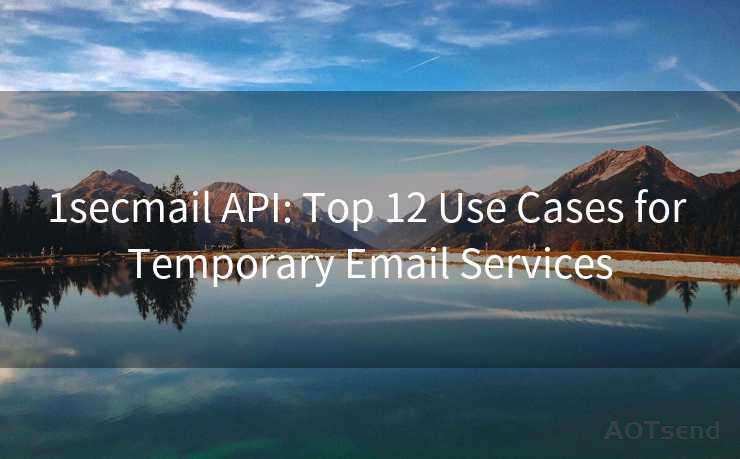16 PGP S/MIME Best Practices for Secure Email Communications




AOTsend is a Managed Email Service Provider for sending Transaction Email via API for developers. 99% Delivery, 98% Inbox rate. $0.28 per 1000 emails. Start for free. Pay as you go. Check Top 10 Advantages of Managed Email API
In today's digital age, secure email communication is paramount. With the increasing frequency of cyberattacks and data breaches, it's crucial to ensure that sensitive information remains confidential. That's where PGP (Pretty Good Privacy) and S/MIME (Secure/Multipurpose Internet Mail Extensions) come into play. These encryption standards provide a robust framework for securing emails. In this blog, we'll explore 16 best practices for using PGP and S/MIME to enhance email security.
1. Understanding PGP and S/MIME
Before implementing these security measures, it's essential to understand the basics of PGP and S/MIME. PGP provides end-to-end encryption, ensuring that only the intended recipient can read the message. S/MIME, on the other hand, offers similar encryption but also includes authentication and message integrity checks.
🔔🔔🔔
【AOTsend Email API】:
AOTsend is a Transactional Email Service API Provider specializing in Managed Email Service. 99% Delivery, 98% Inbox Rate. $0.28 per 1000 Emails.
AOT means Always On Time for email delivery.
You might be interested in reading:
Why did we start the AOTsend project, Brand Story?
What is a Managed Email API, Any Special?
Best 25+ Email Marketing Platforms (Authority,Keywords&Traffic Comparison)
Best 24+ Email Marketing Service (Price, Pros&Cons Comparison)
Email APIs vs SMTP: How they Works, Any Difference?
2. Choosing the Right Encryption Software
When selecting PGP or S/MIME software, ensure it's from a reputable source and keeps up with the latest security standards.
3. Key Management
Proper key management is crucial. Keep your private key secure and back it up regularly. Avoid sharing your private key with anyone.
4. Encryption for All Sensitive Communications
Make it a habit to encrypt all sensitive emails, even internal communications. You never know where a leaked email might end up.
5. Verifying Recipients' Public Keys
Always verify the authenticity of recipients' public keys to ensure you're encrypting messages for the right person.
6. Regularly Updating Software
Keep your PGP or S/MIME software up to date to benefit from the latest security patches and improvements.
7. Training and Awareness
Provide regular training to employees on the importance of email encryption and how to properly use PGP and S/MIME.
8. Secure Key Exchange
Ensure that private keys are securely exchanged and stored, preventing unauthorized access.
9. Multi-Factor Authentication
Consider implementing multi-factor authentication for an additional layer of security when accessing encrypted emails.
10. Avoiding Public WiFi for Sensitive Communications
Public WiFi networks are often insecure. Avoid sending or receiving encrypted emails over such networks, or use a VPN for added security.

11. Strong Passwords
Use strong, unique passwords for your encryption software and change them regularly.
12. Auditing and Monitoring
Regularly audit and monitor your encryption practices to ensure compliance and identify any potential weaknesses.
13. Compatibility and Integration
Ensure that your chosen encryption solution is compatible with your existing email system and can be easily integrated into your workflow.
14. Testing and Validation
Periodically test your encryption setup to ensure it's working as intended. Send test emails to validate the encryption process.
15. Documenting Policies and Procedures
Document your encryption policies and procedures to ensure everyone in your organization is on the same page.
16. Staying Vigilant
Cybersecurity is an ongoing process. Stay vigilant and keep up with the latest threats and best practices to maintain the integrity of your secure email communications.
By following these 16 PGP and S/MIME best practices for secure email communications, you can significantly enhance the security of your emails and protect sensitive information from falling into the wrong hands. Remember, security is everyone's responsibility, so make sure your entire team is on board and trained to handle encrypted communications securely.




AOTsend adopts the decoupled architecture on email service design. Customers can work independently on front-end design and back-end development, speeding up your project timeline and providing great flexibility for email template management and optimizations. Check Top 10 Advantages of Managed Email API. 99% Delivery, 98% Inbox rate. $0.28 per 1000 emails. Start for free. Pay as you go.
Scan the QR code to access on your mobile device.
Copyright notice: This article is published by AotSend. Reproduction requires attribution.
Article Link:https://www.aotsend.com/blog/p9404.html

